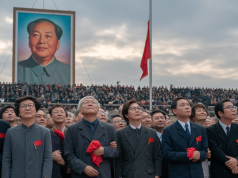Understanding the International Day for Preventing the Exploitation of the Environment in War and Armed Conflict
Every year on November 6, the world acknowledges the International Day for Preventing the Exploitation of the Environment in War and Armed Conflict. This day serves as a crucial reminder of the importance of protecting our planet, particularly in times of conflict. Established by the United Nations General Assembly in 2001, this observance emphasizes the often-overlooked consequences of warfare on the environment.
Why is This Day Celebrated?
The primary goal of this day is to raise awareness about the environmental damage caused by armed conflict and to promote the need for environmental protection during warfare. The UN recognizes that armed conflicts can lead to significant ecological destruction, jeopardizing not only the environment but also human health and livelihoods.
A Brief History
The roots of this observance can be traced back to the increasing recognition of the environmental impacts of war. From deforestation and pollution to the destruction of biodiversity and natural resources, the effects of armed conflict on the environment have become too significant to ignore. The UN’s resolution to establish this day was a response to calls from various nations and environmental organizations advocating for the protection of the environment during wartime.
Significance of the Day
This day is significant not only for environmental advocates but also for communities affected by war. It serves as a platform for dialogue on how to mitigate environmental damage during armed conflicts and emphasizes the responsibility of all nations to protect the environment, even in times of war. By raising awareness, the hope is to foster a culture of peace and sustainability.
How is it Observed?
Observing this day can take many forms, including:
- Educational campaigns to inform the public about the environmental impacts of war.
- Workshops and discussions focusing on sustainable practices in conflict zones.
- Community events that promote peace and environmental stewardship.
- Social media campaigns using hashtags like #EnvironmentInWar to spread awareness.
Fun Facts
- The UN has documented numerous cases where military actions have led to significant environmental degradation.
- In some conflicts, the destruction of ecosystems has had long-lasting effects on local communities, affecting food security and health.
- Efforts to incorporate environmental protection into military strategies are on the rise, with many nations recognizing the importance of sustainability even in conflict situations.
Join the Movement!
As we approach November 6, let’s take a moment to reflect on our collective responsibility to protect the environment. Whether through sharing information, participating in community events, or advocating for sustainable practices, every action counts. Together, we can ensure that our planet is safeguarded, even in the face of conflict. Join the conversation and make your voice heard!











